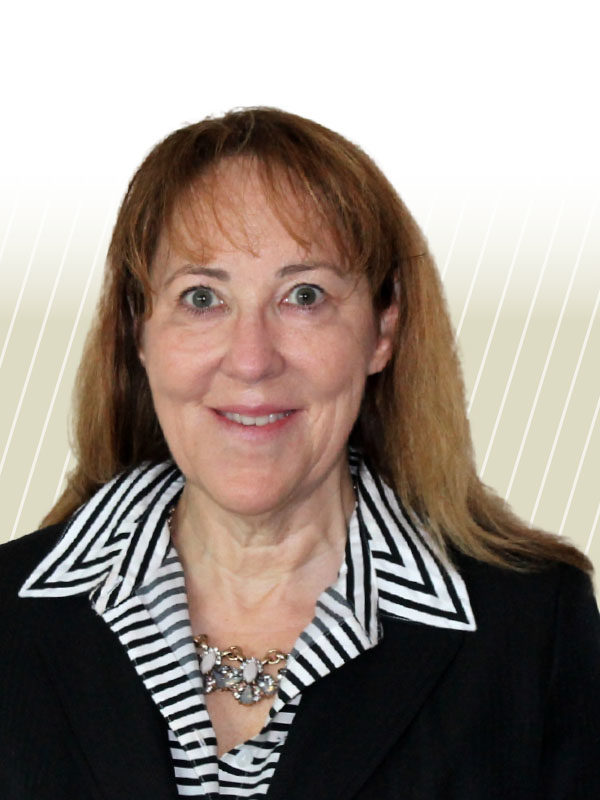When she is communicating with board members, Ruby J. Sherman tries to strike an appropriate balance with transparency. “Too much information is overwhelming for them, and too little undermines the integrity and credibility of their fiscal responsibilities,” she says. “Board members like to focus on the big picture.”
At the Community College of Baltimore County where Sherman is the controller, prior to any board meetings, CCBC’s president and senior leaders often review the questions likely to be asked by board members. “This allows staff time to prepare,” she says. “It’s all a matter of planning and understanding your board members and their potential concerns.”
Before joining CCBC last year, Sherman spent 12 years at Montgomery College in Maryland, starting as a senior accountant and moving up to vice president of finance and chief financial officer.
The mother of two adult children, Stephen and Gretchen, Sherman believes that her biggest challenge—by far—was raising two kids while working and going to school. “I needed to balance all three priorities, which forced me to multitask and plan—characteristics that help me today,” she says. “I consider challenges to be opportunities.”

What functions do you currently supervise and which one is most likely to keep you up at night?
Accounting, accounts payable, procurement, risk management, and payroll; however, none of these in particular stand out. Each one at different times during the year has more stress than the other, mainly when it is impacted by external and internal changes in regulations or policy, which heightens my focus.
Describe an example of a policy impact.
Most recently, the state of Maryland passed the sick and safe leave act—officially known as the Maryland Healthy Working Families Act—which permits part-time employees to earn paid sick leave. The act was vetoed by Governor Larry Hogan last year, only to be overridden by the general assembly in January, leaving us with one month for implementation. For adjunct faculty members, we had to figure out how to convert, track, and accrue their hours. We ended up having to hire a part-time person in payroll to assist with the added workload.
I’m sure you hear this often, but regulations are continually changing both at the federal and state levels. Just recently, we’ve had changes that relate to academic programs, campus safety, and disability. The rules and mandates are often difficult to implement and monitor, and cost the college money. We usually need technology to manage, track, and report on a new mandate, as well as money for training and materials to facilitate compliance with the regulations.
You also supervise procurement. What sorts of errors have you noticed institutions making with their purchasing activities?
We sometimes move ahead without a clear vision. By spending time with the person making the requisition, we can better identify the desired outcome. We need to be strategic in how we procure, and strengthen our relationships with vendors so that we get value from them—including discounts and job opportunities for students.
We shouldn’t focus on savings at the expense of long-term value.
How would you describe your institution’s risk management?
At CCBC, we are pretty aggressive in how we mitigate risk through training, communication, and adopting policies and procedures when needed. For example, we conduct training and drills on active shooters, cybersecurity, sexual harassment, and emergency preparedness.
What operational efficiencies have you recommended?
I’m always looking at ways to re-engineer business processes and focusing on creating efficiencies and savings.
At CCBC, my focus has been on modernizing our business processes by eliminating manual paper transactions. We are currently testing and developing work flow to attach supporting documentation to our purchase requisitions so that there is no manual mailing, copying, or scanning. We’re eliminating the need to file and retain paper documents throughout all the processes. Right now, we’re looking at automating our travel and expense requisitions and PCard [purchasing card] reconciliations by leveraging technology.
At Montgomery College, I automated the way that our GASB statements were generated in our Banner system, and led the outsourcing of the management of the college’s bookstore. We also outsourced all our accounts payable and student check processes to a third-party vendor, which gave us a rebate and saved us time and staff resources.
How did employees react to the outsourcing?
With a lot of anxiety and fear. I used the ADKAR (awareness, desire, knowledge, ability, and reinforcement) change management framework to make employees aware of the situation, invite their involvement, and make sure that they were informed throughout the transition. The college offered retirement incentives, the option to go with the vendor, and job-placement training. In the end, it was a successful process that brought savings to the college, and even those employees who decided to go with the vendor were happy with their decision.
What’s the most important professional lesson that you have learned?
Making decisions is a team effort. We need to collaborate with units across the college to get buy-in from all stakeholders. Communication and collaboration are important in everything that I do.
When I first came to higher education from the private sector, a senior leader told me that it was very important to understand and adapt to higher education’s culture, which forced me to open my eyes and become aware of how it works.
In the private sector, I could make a lot of decisions on my own. That’s not how things are done here.
How would you describe your management style?
Inclusive. I’m hands off. I promote teamwork and collaboration. I’m there to provide guidance and to lead. I believe in letting people explore and be innovative in their work.
What is your biggest professional success?
While at Montgomery College, I led a team to develop a fifth-course, tuition-free scholarship to advance student completion. Students who were enrolled in 12 credits and took another three-credit course got the last course free. The scholarship was designed for need-based students who maintained a certain GPA and were Pell-eligible.
To get this scholarship off the ground required collaboration with various departments throughout the college, including financial aid, enrollment management, communication, faculty, and staff. I found it so rewarding to be able to help our students out financially. We awarded more than 100 scholarships each semester.
What event in your life may have changed your outlook or sense of purpose?
I recently lost my sister, and she was very close to me. Her death was quite sudden. It makes you take a look at where you’re going in life, what you are doing for others, and whether you’re making the best use of the time you have left.
I totally believe in work/life balance.
MARGO VANOVER PORTER, Locust Grove, Va., covers higher education business issues for Business Officer.



